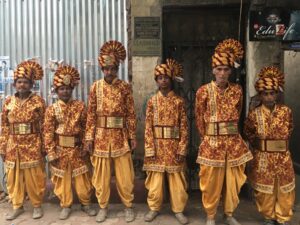Despite barriers of rat screen, parge, and tar,
despite blustering wind in the chimney,
I think I hear something setting up house
in the cellar. It’s a night to come in
Despite barriers of rat screen, parge, and tar,
despite blustering wind in the chimney,
I think I hear something setting up house
in the cellar. It’s a night to come in
By LAUREN CAMP
If I won’t remember that I was in Virginia last year without praise
of darkness, or the autumn drift I spent in Wisconsin watching a cardinal
nip the oak, if I see and forget field thick over field, the stalks
cut against green—how will I fetch forth the half-dead
Translated by NARIMAN YOUSSEF
The village had many corners, of which the far western side, leading to the bus terminal, was the bleakest. Om Saber sat on the clean plastic bench installed by the village’s youth committee and waited for the first microbus to take her to the city. With an anxious movement, she reached into her bra to check on the piece of paper she had placed there. Abu Hosny, the old taxi driver, had written down for her all the instructions that she needed to get to her destination: Shatta Prison, where the sweetest part of her now resided, which made distance and time nothing but an illusion. A large cat rubbed its dewy fur on the hem of her black dress. Om Saber smiled and tried to stay still so as not to disturb the cat. She smiled again when she found the paper in its fold.
He pulled up as I walked on the side of a busy Lyon road, the type that becomes a highway once it hits the outskirts of town. Ignoring the thick traffic behind him, he stalked me slowly in a compact car, beckoned to me through his open window, across the empty passenger seat.
The mind works like a solar system, an interplanetary medium to keep things running smoothly. Moses speaks in a memorized whisper, his voice soft, like the warm towel he places on her forehead.
Hawa closes her eyes, drifts with the sensation of rocks pounding palm nuts open, small fingers reaching inside for kernels. They are teenagers again, and he is her caring boyfriend who brings her palm kernels for snacks when she lies sick with malaria. She heals and they celebrate with dance: the small of her back supported by his palms as she melts into a ballet fondu. They dance under the palm tree, pretend they are ballet partners at school, performers onstage. If only things were that simple again.

“Name and fame,” Mohammad Sabir said in English, shouting over the noise of the traffic. Manager and occasional trumpet player for one of dozens of marching bands for hire in Kolkata, India, he was describing the glamor that once compelled families across the city to hire bands like his.
Fifty-year-old Master Sabir, as bandleaders are known, was sitting behind his desk in a pink, threadbare shirt. A goat was tied to the electricity box out front, barefoot children raced past, and, nearby, bidi makers sat chopping dried tobacco by hand. According to my phone, it was only 103 degrees, but the reported “feels like” had hovered between 118 and 125 for days, and it was sometimes hard to breathe. This was in May of 2019, halfway through Ramadan and an hour before iftar; Sabir had not eaten or taken a drink of water all day.
Translated by NASHWA GOWANLOCK
Farah was struggling to keep her balance in the heaving crowd near the locked gate. Despite how long she would have to wait to get into the hall at Amman University—where she’d already been standing for more than an hour—she remained both calm and cheerful. She was even humming a song—the last one she’d listened to on the way from the border crossing to a modest hotel in the Jordanian capital where she was sharing a room with the university friend joining her for the Fairouz concert.
By RALPH BURNS
We had to leave because someone saw my
father set his bottle down. Because
of something in us we leaned into one another